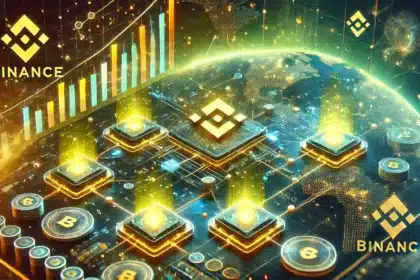Japan’s Ministry of Economy, Trade, and Industry (METI) is making a significant leap into the digital future with the launch of a groundbreaking blockchain pilot. This pilot is designed to bring transformative changes to how real-world assets (RWAs) are managed and traded within the digital economy.
By focusing on advanced Web3 technologies, METI aims to set a new standard in digital public goods, ensuring that Japan remains at the forefront of global innovation.

The pilot isn’t just a government initiative; it’s backed by some of the most influential names in the industry. PwC, a giant in advisory services, has joined forces with digital commerce leader Rakuten and blockchain specialist NTT Digital. Together, these organizations are working on scalable blockchain solutions that could redefine asset management and tokenization in Japan.
This collaboration highlights Japan’s commitment to creating a robust digital infrastructure capable of supporting the future growth of digital public goods.
Blockchain Pilot Centers on Real-World Asset Tokenization
One of the most exciting aspects of METI’s pilot is its focus on the tokenization of real-world assets. This process involves converting tangible assets, such as real estate, artwork, and commodities, into digital tokens that can be easily traded on a blockchain. The blockchain pilot’s emphasis on RWA tokenization is set to revolutionize Japan’s financial landscape, offering new avenues for both domestic and foreign investment.

The move towards RWA tokenization is expected to create more transparent, efficient, and accessible markets, making it easier for investors to engage with Japan’s economy. METI’s pilot is not just about digital transformation; it’s about modernizing how value is exchanged and managed on a global scale. By establishing blockchain-based marketplaces, Japan is positioning itself as a leader in digital economy innovation, opening doors to international transactions and investments.
Marketplace Innovation with Leaf’s Sake World
A unique feature of this pilot is the development of a marketplace for Leaf’s Sake World, where consumers can buy Japanese sake and own NFTs. This blend of traditional products with digital assets demonstrates METI’s forward-thinking approach to integrating blockchain technology into everyday commerce. The initiative shows how blockchain can be leveraged to enhance consumer experiences while driving economic growth through innovative digital markets.
The economic potential of METI’s blockchain pilot is enormous. By focusing on RWA tokenization, the blockchain pilot is paving the way for a new era of economic inclusivity and efficiency in Japan. This initiative could lead to the creation of new financial models that benefit businesses and consumers alike, making the management and exchange of value more streamlined and accessible.

As Japan continues to advance in blockchain technology through this pilot, it is likely to attract significant international interest and investment. The blockchain pilot’s success could solidify Japan’s position as a global leader in digital economy innovation, ensuring its competitiveness in an increasingly digital world.
Blockchain Pilot Set to Redefine Japan’s Digital Future
In summary, METI’s blockchain pilot is a visionary step towards transforming Japan’s digital economy. By focusing on the tokenization of real-world assets and the development of digital public goods, this initiative is poised to drive substantial economic growth and modernize Japan’s financial landscape.
As this blockchain pilot progresses, the world will be watching how Japan sets new standards in digital innovation. METI’s efforts to integrate blockchain technology into the fabric of the economy demonstrate the country’s dedication to staying ahead in the global digital race. Stay informed with updates from The BIT Journal as Japan continues to lead in this transformative journey.





























